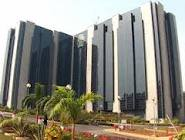 Nigeria’s inter-bank lending rates fell sharply this week to an average of 13 per cent, from 15.08 per cent, as cash flow from February budgetary allocations to government agencies boosted liquidity in the system, traders said. Nigeria distributed N620.7 billion from oil receipts to its three tiers of government early in the week, and bankers said the funds hit the system on Wednesday, sinking the cost of borrowing among banks.
Nigeria’s inter-bank lending rates fell sharply this week to an average of 13 per cent, from 15.08 per cent, as cash flow from February budgetary allocations to government agencies boosted liquidity in the system, traders said. Nigeria distributed N620.7 billion from oil receipts to its three tiers of government early in the week, and bankers said the funds hit the system on Wednesday, sinking the cost of borrowing among banks.
The market opened with a cash balance of about N194 billion on Friday, and this provides the needed relief for the market,” a bank treasurer said. The market had closed on a negative balance of N129.55 billion last Friday. The secured Open Buy Back (OBB) eased to 12.50 per cent from, 14.50 per cent last week, 50 basis points above the central bank’s 12 per cent benchmark rate, and 2.50 percentage points above the Standing Deposit Facility (SDF) rate. Overnight placement fell to 13 per cent, from 15.25 per cent, while call money traded closed at 13.50 per cent, against 15.50 per cent last week
Nigeria shares proceeds from oil sales from a centrally held account every month to its three tiers of government – federal, states and local – providing liquidity to the banking system and impacting on lending rates.
.Bankers said rates are expected to inch up next week, as a result of aggressive liquidity mopped-up by the central bank through the sales of treasury bills and other expected cash outflows into foreign exchange and bond purchases next week.
previous post

